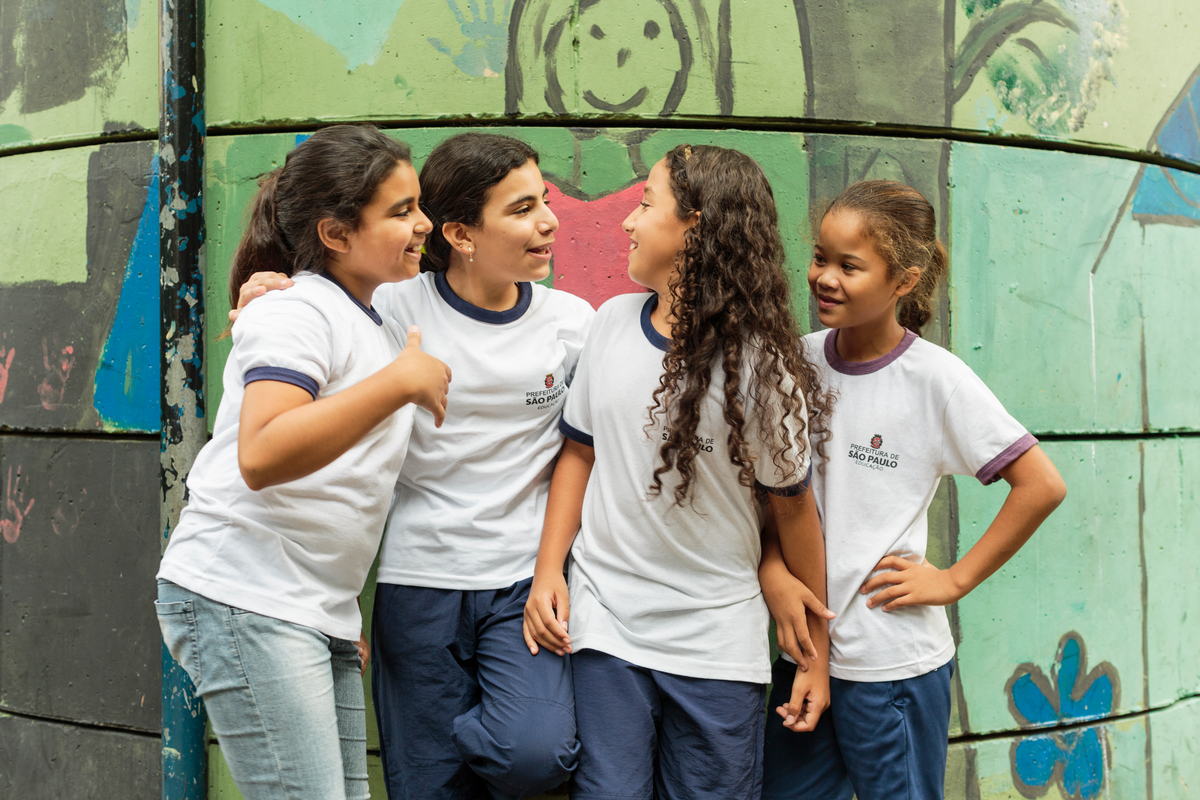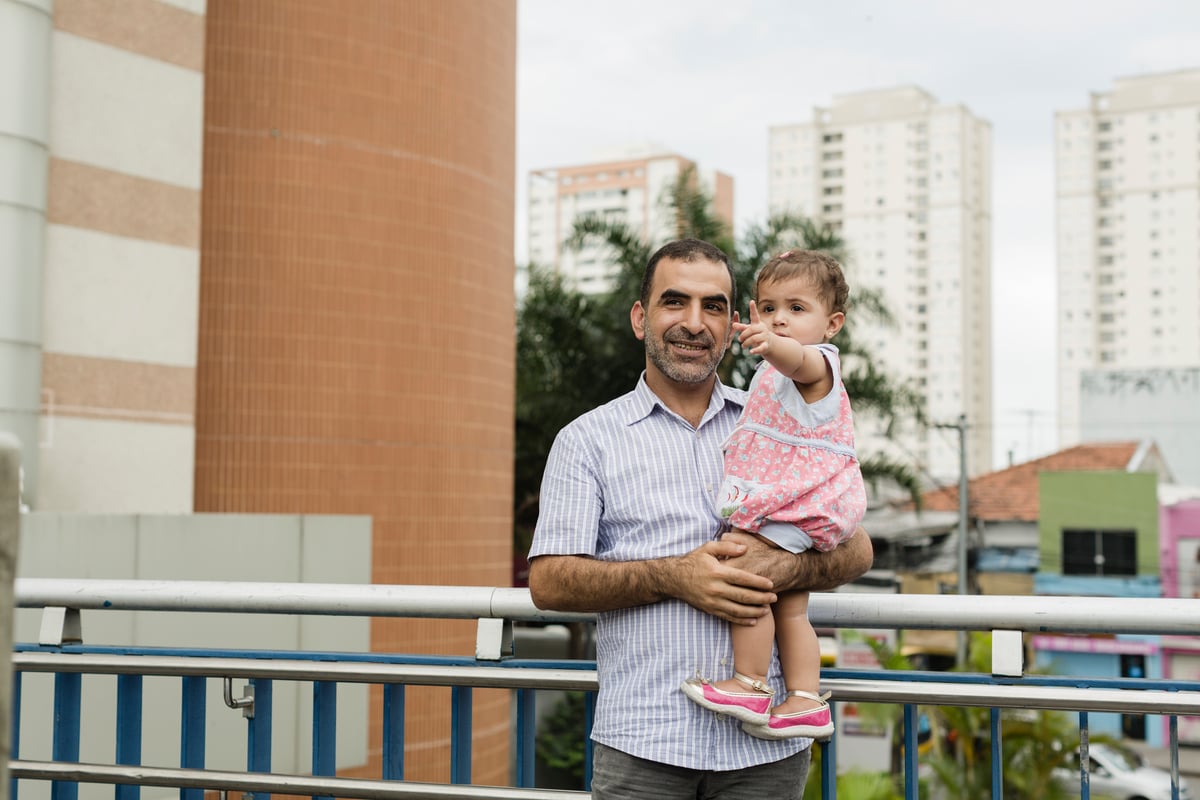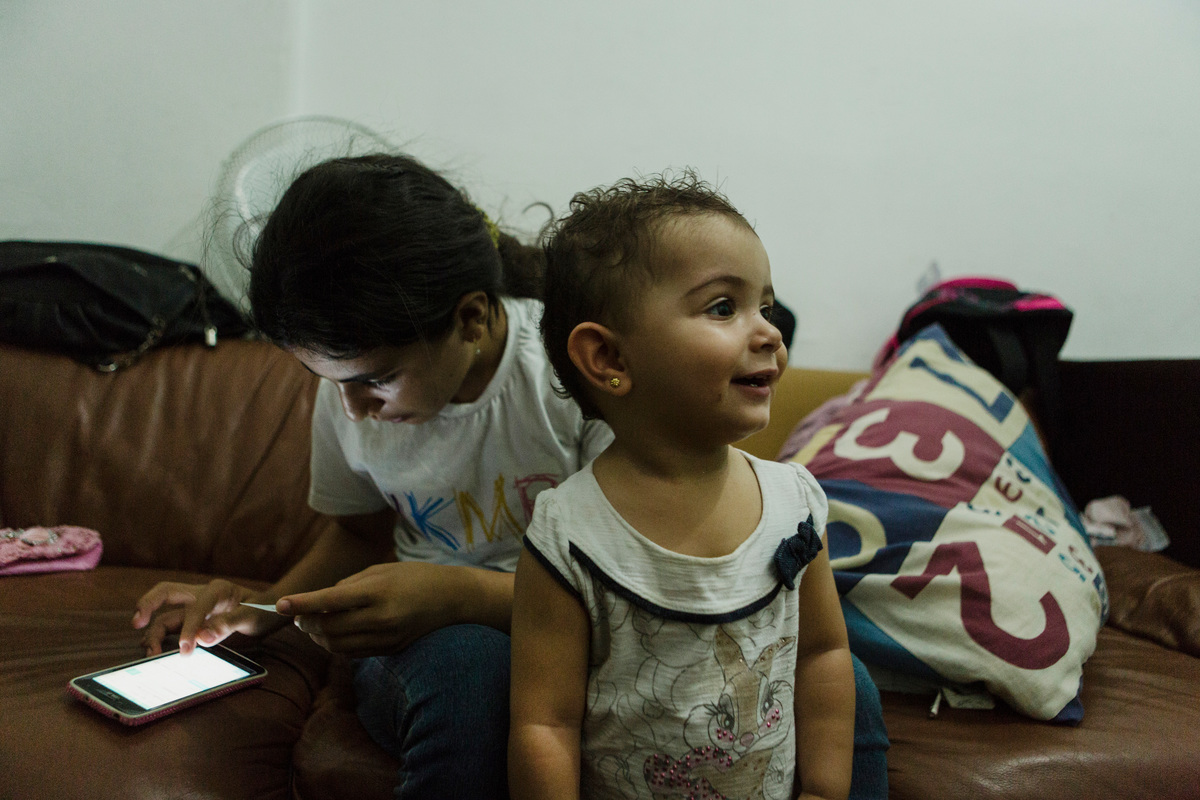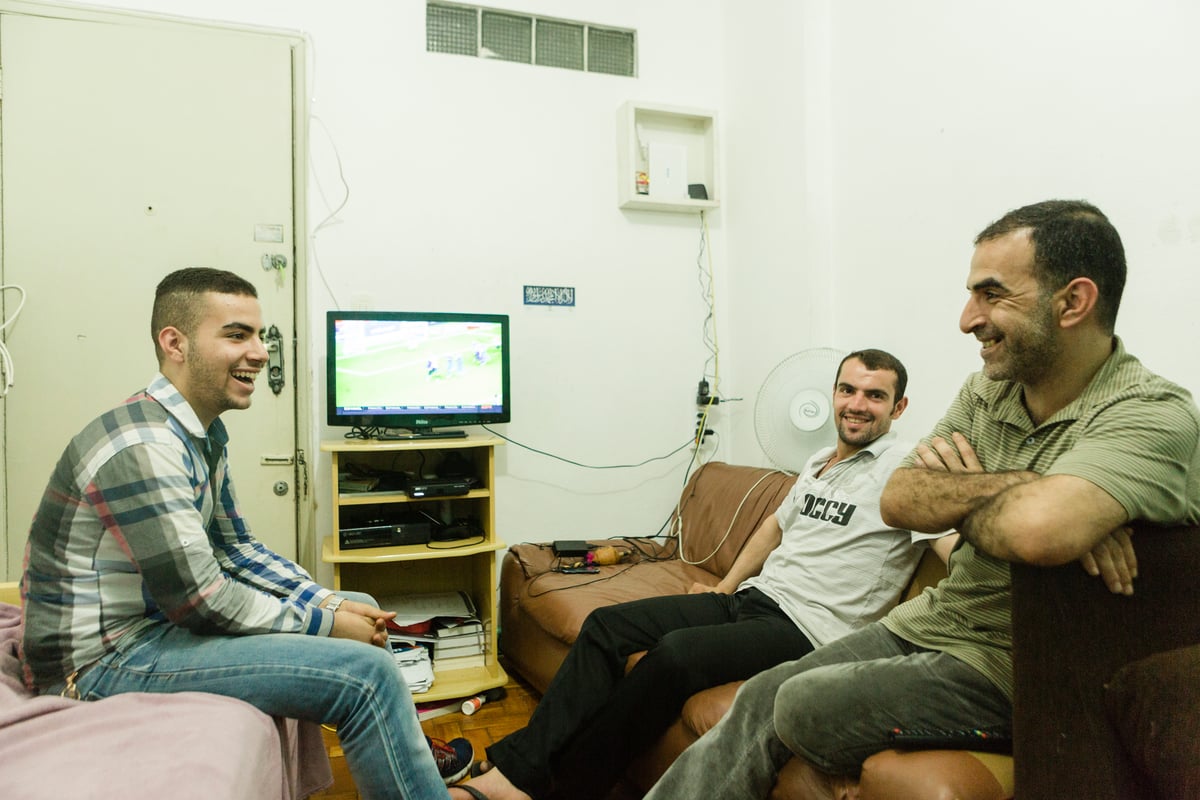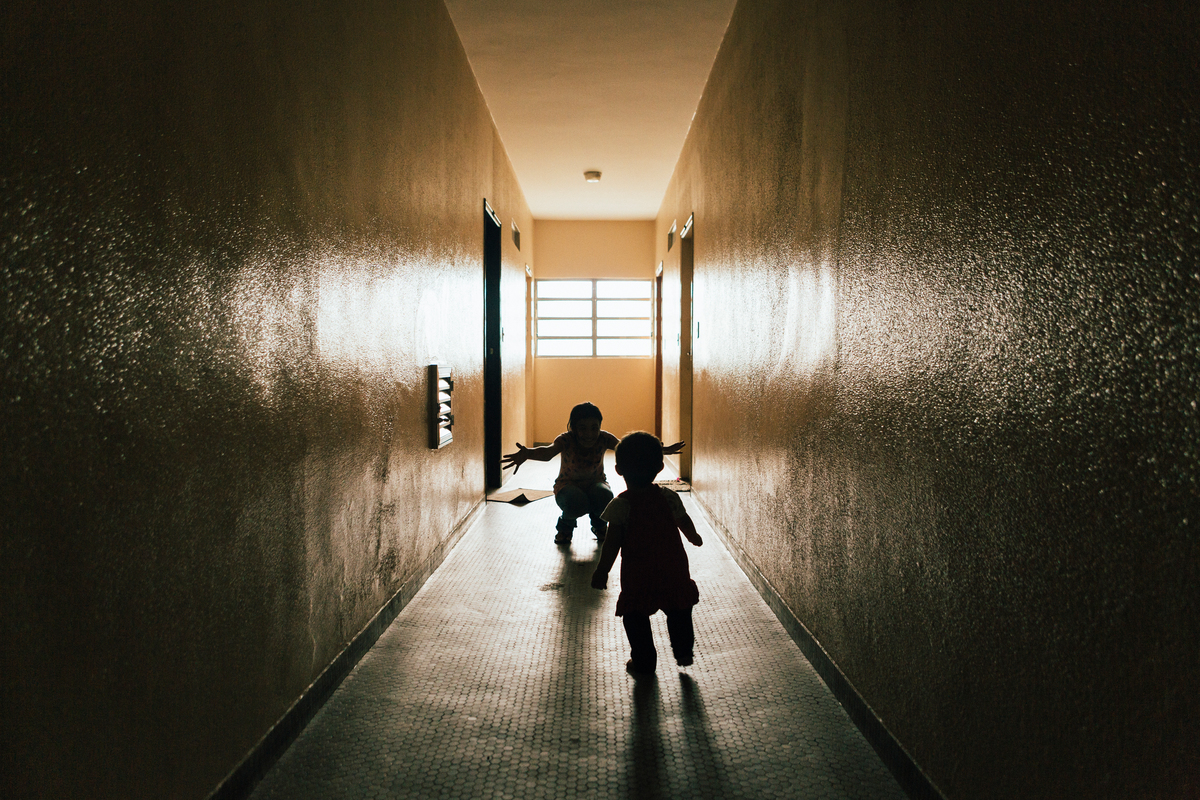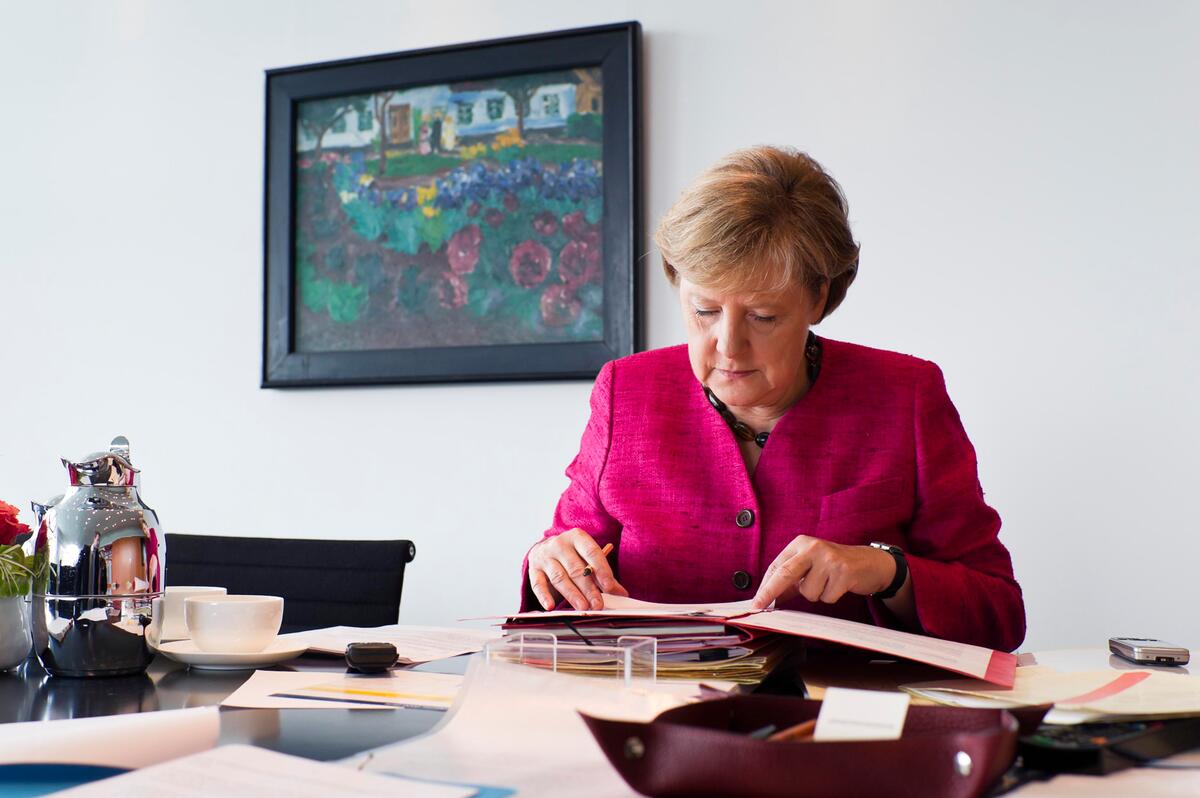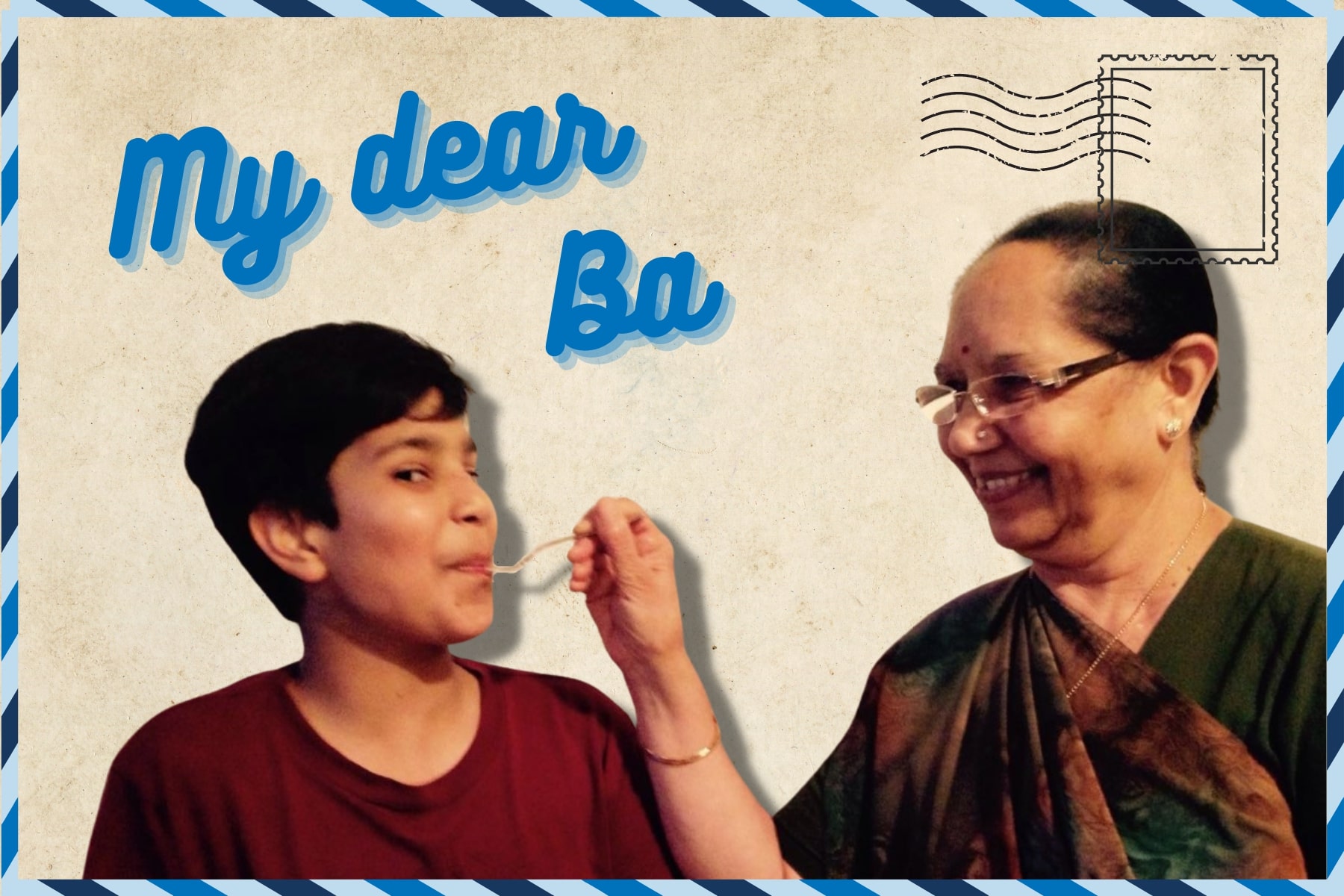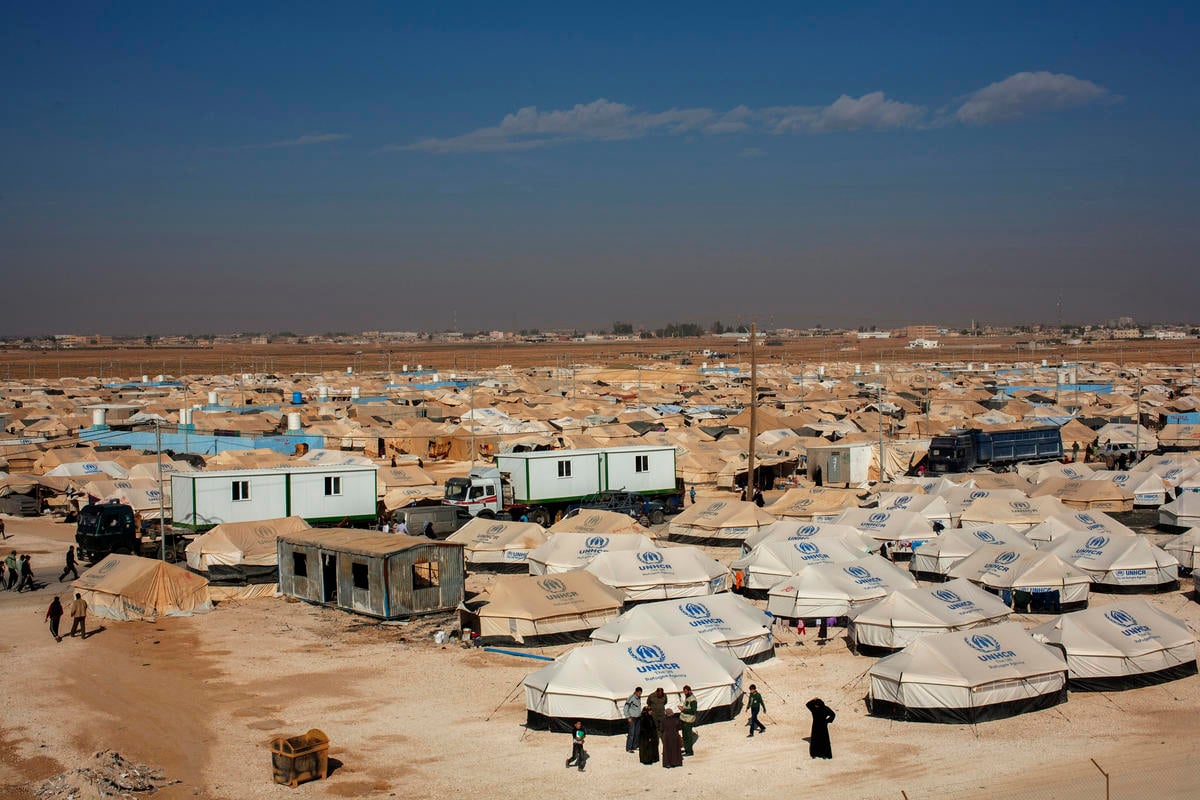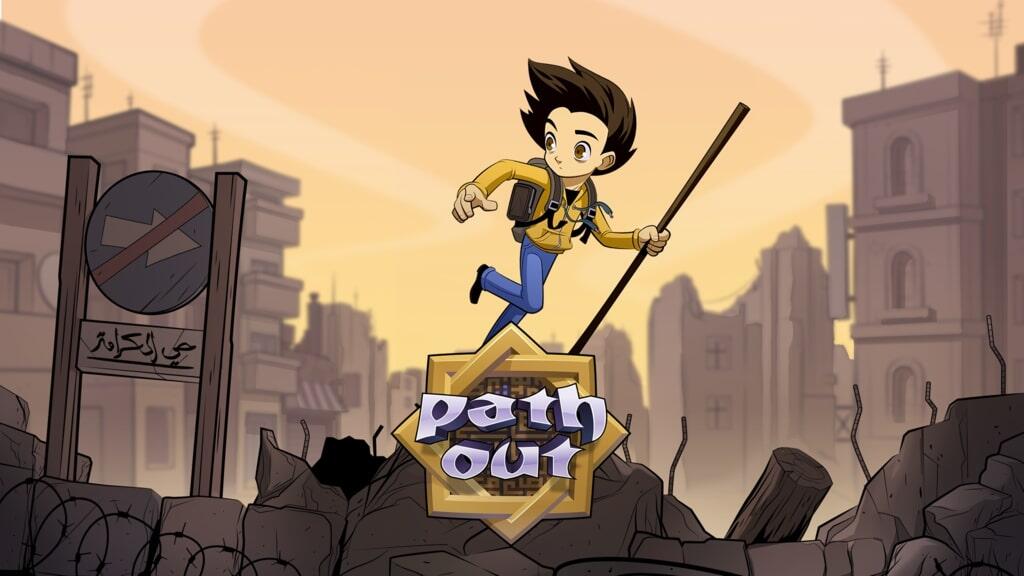The Syrians starting over in Brazil

The Syrians starting over in Brazil
Twelve-year-old Hanan Dacka listens closely as her teacher at Duque de Caxias public school in São Paulo, Brazil, assigns some group work about the Aedes aegyptimosquito and its role in transmitting the Zika virus.
Moments later, Hanan slides in between Maria Luiza and Andressa, two new friends she has made since starting in class 5B just four days ago, and the three of them get to work, chatting and laughing as they fill out the worksheet.
“I love being in Brazil,” says Hanan, a refugee from Syria, later that day, breaking into a broad smile. “I’m so happy to be here. I have my friends here and my teacher is the best.”
After four years of war and flight, Hanan, her father Khaled, mother Yusra, brother Mostafá and baby sister Yara relocated to this sprawling metropolis just over a year ago under Brazil’s humanitarian visa programme, which offers those fleeing the Syria conflict a chance to start over.
Since 2013, Brazilian consulates in the Middle East have been issuing the special visas under simplified procedures to allow survivors of the war to travel to Latin America’s largest country, where they can then present an asylum claim.
Despite the geographical distance, Brazil recently extended the “open-door” policy for a further two years to give more people a chance to rebuild their lives after fleeing a war that has killed at least 250,000 and driven almost 5 million into exile.
Originally from Idlib, in north-west Syria, Hanan’s father, Khaled, 40, was the first to reach Brazil, where he and the rest of the family have now been granted asylum. Sitting on one of two mismatched brown couches in his living room in downtown São Paulo, he haltingly describes how they came to run for their lives.
When the Arab Spring swept into Syria in 2011, he was working at a currency exchange office in Idlib. As the initially peaceful protests turned into conflict, the historic city swiftly became a bloody frontline in the now five-year-old war, changing hands in bitter fighting between rebels and government forces.
“I’m so happy to be here. I have my friends here, and my teacher is the best.”
After helping friends and neighbours to escape the violence, Khaled was arrested and accused of people trafficking by Syrian authorities – spending 11 months in prison, where he says he was tortured. Eventually freed by a judge without charges, he received warnings that both the authorities and opposition militants planned to kill him. Now he had to run.
Setting out for Jordan with the help of a childhood friend doing mandatory service in the Syrian army, he packed his family — at the time just Yusra, now 35, Mostafá, now 16, and Hanan — into a car that would follow another carrying the two men.
“If they were going to kill me, I didn’t want my family to see me die,” says Khaled, rubbing the salt-and-pepper stubble on his chin as he talks.
Reaching Jordan after a fraught journey through 16 military checkpoints, the Dacka family stayed in Za’atari refugee camp. Their two-and-a-half years there, Yusra says, were a challenge. Water was a long walk from the caravans, and weather conditions were harsh – both scorching hot during the day and freezing cold at night.
Khaled’s younger brother Kamal, who had already left for Brazil, where he now has residency, arranged for the family to receive visas through the Brazilian embassy in the Jordanian capital, Amman.
According to Beto Vasconcelos, the National Secretary of Justice and President of the Brazilian National Committee for Refugees, the special visa scheme was needed because of the “serious human rights violations” in war-ravaged Syria. He says that this scheme “responds to the logic of protection [for] humanitarian reasons and takes into consideration specific difficulties in conflict zones.”
Last year, Khaled flew on ahead to make arrangements for the family, while Yusra – at the time heavily pregnant with Yara – and the children followed some four months later. When they arrived in São Paulo, it was the first time Khaled had seen his youngest daughter, who was born in Za’atari and is now 16 months old.
Khaled, Yusra and their children now live in a one-bedroom apartment with Yusra’s younger brother Zaher, his wife Nesreen and the four children they have between them. Khaled’s family has refugee status, while Zaher’s has just begun the process of requesting asylum.
“If they were going to kill me, I didn’t want my family to see me die.”
All 11 family members are among some 2,100 Syrian refugees who now live in Brazil. Most make their new home in São Paulo, the country’s largest city, with a population of 11.2 million people. It already had a significant Syrian community before the conflict began.
The currency exchange business behind him, Khaled now works in a factory that makes protective gear. He was recently promoted to supervisor and works an oven that fires acrylic shields used by riot police. He says he is settling in well after his ordeal.
“I’m just happy to be working again,” he says with a smile. “The ovens are hot, but we wear protective gear. It’s not so bad.”
His son Mostafá, while just 16, works seven days a week at a cell phone accessory store in downtown São Paulo. He says he does not mind not having a day off because it is better than his previous job at a pizza shop.
Hanan has settled in at a new class, after struggling at the first one she attended because she had not yet learned the language. She complained that she was treated poorly there by both her teacher and classmates.
After just four days at her new school, she already has a group of friends and fits in seamlessly, speaking Portuguese nonstop in the playground. Her teacher, Regina Coeli do Couto, supports her integration.
“The kids in this class don’t isolate anyone who is new,” says Coeli de Couto, who has been teaching for 35 years. “Anyone who arrives in this classroom is accepted. They don’t see [Hanan] as different.”
São Paulo presents a host of challenges, from negotiating packed rush-hour traffic, to high levels of street crime. Brazil is also more liberal than Syria, although the Dackas say they have not had difficulty adjusting. While Yusra wears a hijab, Khaled says it is Hanan’s choice if she wants to wear one or not. She says she is not sure yet if she will, but she might.
“Anyone who arrives in this classroom is accepted.”
The whole family say they love Brazil and plan on settling here for good, since they do not see an end in sight for the war in Syria, which this month entered its sixth agonizing year.
“You turn back into a human being when you arrive in Brazil,” says Khaled. “I’ve never felt so good.”
As the family of 11 sit in the living room of their São Paulo apartment eating traditional mixed rice kabsa and salad for Friday-night dinner, Hanan starts to sing in Arabic. She is excited to be part of a new children’s choir started by a local NGO that helps refugees.
“It says that when you kill someone you should remember that he is your brother,” she says of the lyrics. “It’s a sad song because Syria is sad.”
After dinner, in the small bathroom she shares with the other 10 family members living in the apartment, Hanan rims the insides of her eyes with the same liquid eyeliner she brought with her from Jordan. She says she wants to be a hairstylist and make-up artist when she grows up, or maybe a doctor.
Hanan often helps watch Yara. She says her sister is her heart and she cannot wait for her next little sister to arrive in May. Yusra is excited for her fourth child too, despite not being able to leave the house because of a difficult pregnancy. The baby will be named Sara, she says.
A life saver for the Dacka family and thousands of others, the programme promoting pathways for admission for significant numbers of Syrian refugees is also welcomed by UNHCR, the UN Refugee Agency, which is holding a high-level meeting on March 30 in Geneva on the topic.
UNHCR’s representative in Brazil, Agni Castro-Pita, knows the importance of such programmes. He recently participated in meetings with delegates from Canada, which has resettled more than 26,000 Syrian refugees under a similar drive, to learn more about private-sector sponsorship and how it can bring in more funds to help refugees, and stresses the importance of everyone involved working together.
“When an institution provides funds, it’s not only about financing,” Castro-Pita says. “To put refugees on the agenda — that is the most important issue.”


